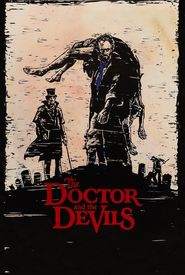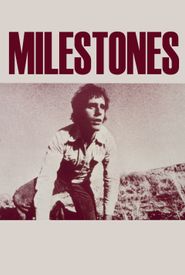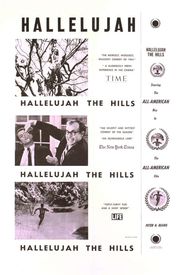David Stone's impact on the cinematic landscape of the 1960s in the United States and the 1970s in Britain was profound and far-reaching. He played a pivotal role in shaping the radical film-making movement of the former decade, and his influence continued to be felt as Britain's golden age of arthouse cinemas unfolded in the latter.
In 1974, David, along with his wife Barbara, embarked on a new venture by acquiring the former Classic cinema at Notting Hill Gate in West London. This marked the beginning of a new chapter in their lives as they transformed the venue into the Gate, a cultural hub that would go on to play a significant role in the city's vibrant arts scene.
As part of their efforts to promote and showcase innovative and cutting-edge cinema, David and Barbara established Cinegate, a distribution company that sought to bring a selection of international films to British audiences. One of their earliest and most notable acquisitions was a trio of films by the talented young German director RW Fassbinder. These films, which included The Merchant of Four Seasons, The Bitter Tears of Petra von Kant, and Fear Eats the Soul, were met with critical acclaim and helped to cement Fassbinder's reputation as a master of his craft.
The cinematic offerings, which marked the initial exposure of Fassbinder's work to the British public, precipitated an instant and sustained surge in both critical acclaim and commercial success for the Gate upon its September 1974 debut. The esteemed establishment's box office and reputation benefited from its bold decision to showcase a diverse range of films that had previously been overlooked by other exhibitors, including the provocative La Cage Aux Folles, the critically acclaimed Annie Hall, and the iconic Manhattan.
The Gate, a renowned film venue, occasionally found itself at odds with the censors, with one notable instance being its screening of the Japanese film "In the Realm of the Senses". In response to this controversy, the theatre was temporarily transformed into a club, and the Rolling Stones themselves took to manning the box office, prepared to intervene at a moment's notice in the event of any sudden police action.
Years later, in 1978, the Gate expanded its operations by opening a second location, Gate 2, in Brunswick Square. And in 1981, the theatre took its cinematic offerings to the beautiful, art deco Camden Odeon, restoring it to its former glory and giving birth to Gate Camden, a new and exciting chapter in the Gate's storied history.
In the heart of Phillimore Place, a majestic Victorian Gothic house served as a weekend retreat for a diverse ensemble of international film artists. Every Saturday night, this esteemed abode would transform into a vibrant hub of creativity, attracting an array of renowned directors and actors. The likes of Bertolucci, Scorsese, Jonathan Demme, Richard Eyre, Wallace Shawn, Robert Kramer, Agnès Varda, and Anouk Aimée would frequently gather at the Mekas brothers' residence, forming a dynamic network of artistic connections.
Jonas and Adolfas Mekas, two influential figures in the world of avant-garde cinema, played a pivotal role in facilitating these encounters. Through their initiative, the Stones had the opportunity to forge lasting bonds with these innovative filmmakers. As a result, they organized a curated program of these cutting-edge films, showcasing them at the prestigious Spoleto festival. This remarkable convergence of artistic talents not only fostered a deeper understanding of each other's work but also inspired new collaborations and creative endeavors.
David, a pivotal figure in the world of cinema, had a profound impact on the Italian film-making community, comprising renowned directors such as Visconti, Antonioni, and Pasolini, who were all drawn to his work. Notably, David collaborated with Adolfas Mekas, producing his debut film, Hallelujah the Hills, a groundbreaking work that showcased the director's unique vision.
Furthermore, David played a crucial role in the development of Jonas Mekas's film career, working with him to create a record of the Living Theatre's stage production of The Brig. This powerful and unflinching portrayal of life, shot secretly within the confines of a US Marines jail, captured the harsh realities of military life and earned widespread critical acclaim.
In recognition of its outstanding quality, the film won the prestigious prize for best documentary feature at the Venice Film Festival, cementing its place as a landmark in the world of documentary filmmaking.
David's remarkable aptitude as a producer lay in his uncanny ability to effortlessly secure commitments from others, rendering it virtually impossible for anyone to decline his requests. This remarkable talent allowed him to successfully produce a trio of swiftly crafted feature films in collaboration with the renowned Joe Sarno, a trailblazing figure in the sexploitation film genre who has since achieved cult status within academic circles.
Additionally, David's impressive production portfolio also includes the groundbreaking film "Ice," a seminal work that sheds light on the radical actions of the era, courtesy of the visionary Robert Kramer. Furthermore, David's extensive list of credits also boasts the production of Kramer's subsequent works, including "Milestones" and "Scenes from the Class Struggle in Portugal," each of which has left an indelible mark on the cinematic landscape.
Jerome Hill's autobiographical film, a deeply personal and introspective work, served as a significant creative endeavor for the director. This unique undertaking marked a departure from the Stones' typical focus on documentary filmmaking, as they delved into the realm of personal storytelling.
The Stones' trajectory in film production soon shifted towards direction when they received an invitation from the Cuban film organization ICAIC to helm a documentary, Compañeras y Compañeros. This collaborative effort allowed the Stones to explore the rich cultural heritage of Cuba, and their work on the film undoubtedly left a lasting impression on the audience.
David's involvement in the Venceremos brigades, a group of young American enthusiasts who embarked on working trips to Cuba, further solidified the Stones' commitment to social and political activism. Through their work, the Stones aimed to foster greater understanding and cooperation between nations, and their contributions to the brigades played a significant role in promoting cross-cultural exchange and diplomacy.
As the notorious exploits of the Rolling Stones continued to garner widespread attention, the Federal Bureau of Investigation's archives on the rock band began to swell in size. In a proactive effort to evade the watchful eyes of law enforcement, the Stones' members took the drastic measure of relocating to London in the year 1971, a move that would undoubtedly bring them a greater degree of anonymity and freedom from the constant scrutiny of the authorities.
Keith Richards' biography:
Keith Richards is a British musician, singer, and songwriter best known for his work as the guitarist and founding member of the Rolling Stones. Born on December 18, 1943, in Dartford, Kent, England, Richards grew up with a passion for music and began playing the guitar at a young age. He met Mick Jagger while attending Dartford Grammar School, and the two would go on to form the Rolling Stones in 1962. Richards is widely regarded as one of the most influential and iconic musicians of all time, known for his distinctive guitar playing style and his role in shaping the sound of rock and roll. Despite his numerous achievements, Richards has also faced controversy and legal issues throughout his career, including a notorious drug bust in 1977 that led to a conviction and a five-month prison sentence.


























